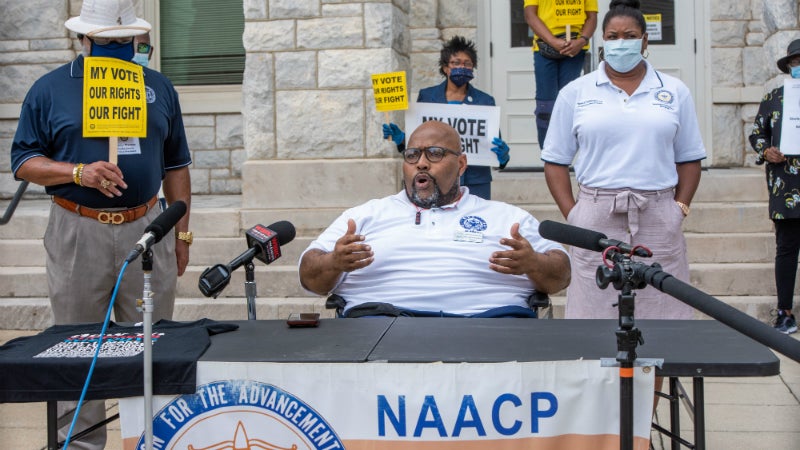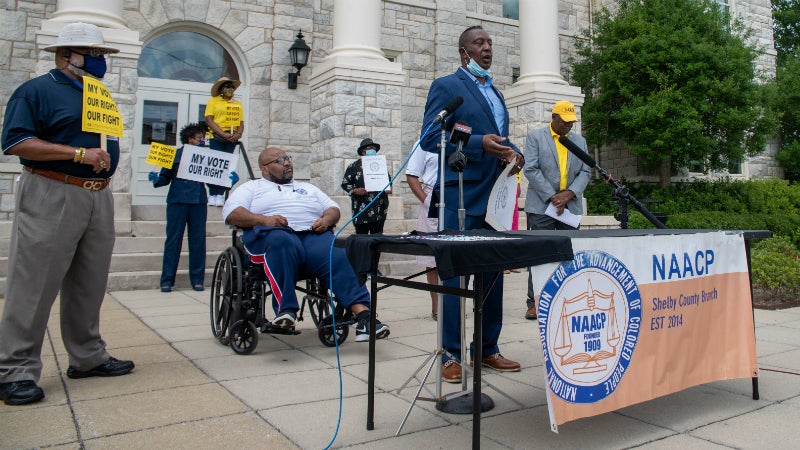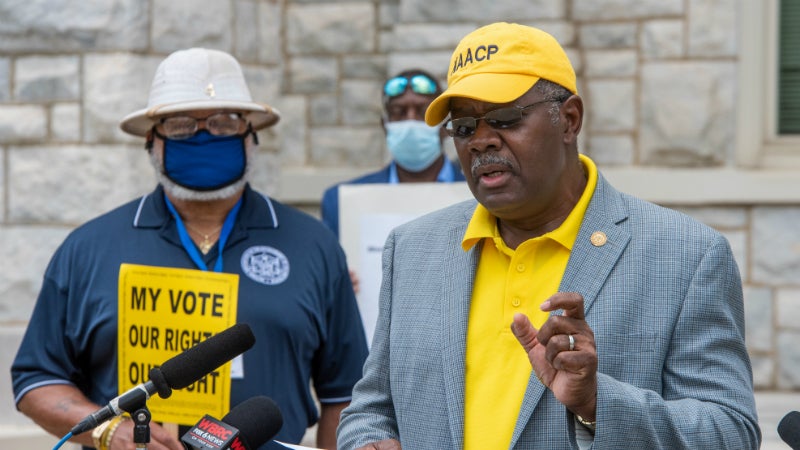Rally held in support of restoring voting protections
Published 4:11 pm Thursday, June 18, 2020
|
Getting your Trinity Audio player ready...
|
COLUMBIANA – The Shelby County Branch of the National Association for the Advancement of Colored People on Thursday, June 18, protested the gutting of the Voting Rights Act of 1965 for the seventh year.
This time, the activists also had a bill pending in Congress to promote.
Kenneth Dukes, president of the NAACP Shelby County Branch, said those present at the front of the Shelby County Courthouse were protesting “what was lost” in the Shelby County v. Holder ruling in 2013.
The ruling struck down two provisions of the Voting Rights Act, including the requirement that states and local government obtain federal preclearance before implementing any changes to their voting laws or practices.
Dukes pointed to recent voting issues in Georgia and Wisconsin as examples of what can happen in the absence of strong voting rights laws.
“If we’re going to have a discussion regarding racism, it all starts with the right to vote,” Dukes said.
Calera City Councilman Ernest Montgomery said he was one of the interveners in the Shelby County v. Holder case and recalled the Supreme Court’s feeling that the measures from the Voting Rights Act were no longer needed.
“As we see what’s going on around the country, we see how it’s important for these protections to stay in place,” Montgomery said.
Alabama NAACP Executive Director Terra Foster and the other speakers noted the introduction of the Voting Rights Advancement Act and its passage by the U.S. House of Representatives.
However, the act has not been taken up by the Senate.
The Voting Rights Advancement Act would reinstate the regulations from the Voting Rights Act of 1965.
Foster and Alabama NAACP President Benard Simelton encouraged residents to urge their senators to demand the act be considered.
“You saw what happened in Georgia with the number of people who were disenfranchised,” Simelton said. “If we want to make the United States a place where everybody can vote, we’ve got to make it easy to vote.”
The requirement of photo identification is a problem for poor residents, Dukes said.
“We have people who are afraid of going to the polls because they’re afraid they’ll be embarrassed,” he said.
The ongoing COVID-19 pandemic presents more voting challenges. Alabama Secretary of State John Merrill is promoting “no excuse absentee voting, but even absentee voting as it is conducted in Alabama could risk exposure to the virus, Simelton said.
All rights are dependent on the right to vote, Dukes said.
“This is not something that is meant to divide us in this country because this covers everybody,” he said.












